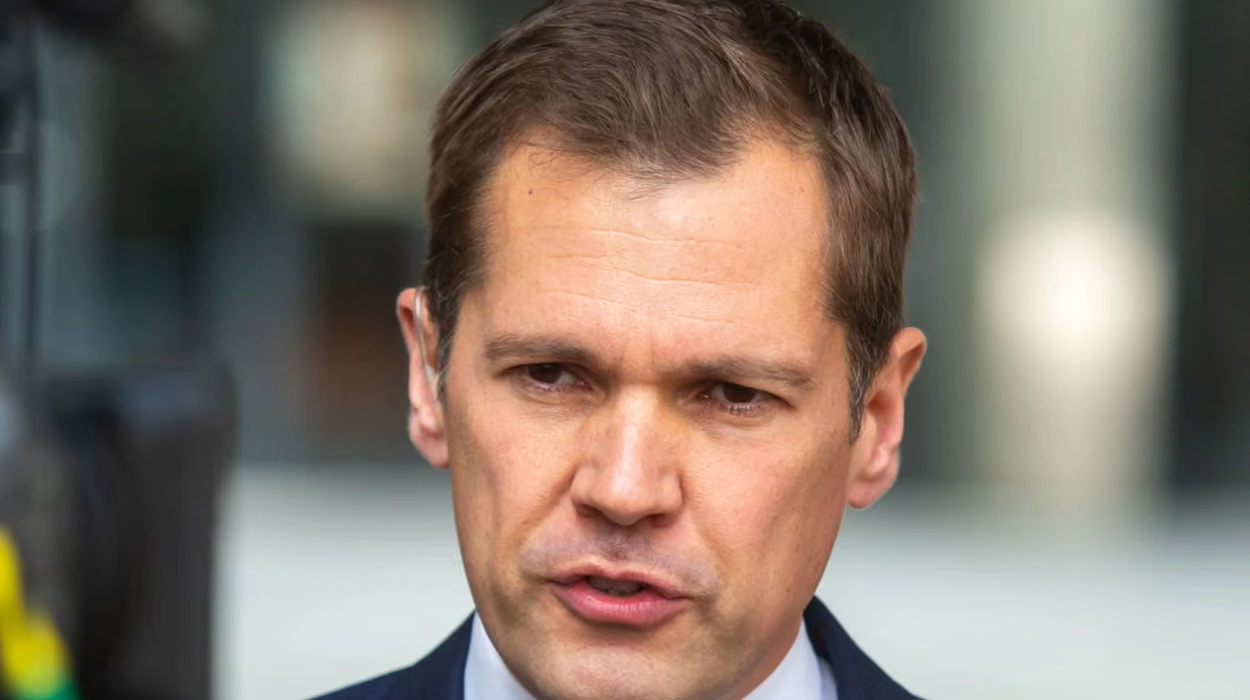UK (Parliament Politics Magazine) – Shadow justice secretary Robert Jenrick says Tory candidates must back leaving the ECHR or stand down, pushing the party further right ahead of conference.
As reported by The Guardian, Robert Jenrick has urged Conservative candidates to commit to leaving the European Convention on Human Rights or not stand for election.
Robert Jenrick’s views on Tory candidates and the ECHR
As debate continues over leaving the international pact, Robert Jenrick said he would require candidates to sign a commitment confirming they uphold Tory values.
He stated,
“I would get them to say you have got to leave the European convention on human rights, and if you don’t want to do that, don’t stand as a Conservative.”
The shadow justice secretary, Robert Jenrick, goes further than party leader Kemi Badenoch, who was elected last year and warned that exiting the treaty would not be a “silver bullet” for immigration concerns.
Critics say the move represents a push to the party’s right, raising concerns among One Nation Tories about losing influence. The party is expected to reveal its updated ECHR policy at the upcoming conference.
Speaking at the Bruges Group think tank, Mr Jenrick was asked whether he was concerned that Conservative candidates could be expelled for holding views differing from central party policy.
He responded,
“I would get candidates to sign a contract, not some kind of technocratic one. I would get them to sign a contract to say they actually stand for Conservative values. I would get them to say you have got to leave the European Convention on Human Rights, and if you don’t want to do that, don’t stand as a Conservative.”
He told a pro-Brexit audience that Britain must leave the ECHR and repeal “a whole series of other laws.”
Mr Jenrick said,
“It means repealing a whole series of other laws which may have had noble intent whether it’s the Equalities Act, the Human Rights Act, the Climate Change Act, but which have had the effect of undermining the sovereignty of parliament.”
The shadow secretary criticized the last Tory administration for higher net immigration after Brexit.
He added,
“The last Conservative government almost stuck two fingers up to the British public by doing precisely the opposite of what was promised.”
How are Conservatives reacting to Robert Jenrick’s ECHR comments?
The European Convention on Human Rights became a major dividing line between Robert Jenrick and Kemi Badenoch in the Tory leadership contest.
Ms Badenoch warned that exiting the ECHR wouldn’t solve national problems, whereas Mr Jenrick insisted the party would “die” if it remained.
In June, the Tory leader established a commission to review whether Britain should exit various international pacts and revise domestic laws.
Announcing the committee, she said,
“If we make that decision that we have to leave the ECHR, then that will be a condition of standing for parliament under the Tory banner.”
A former Tory minister stated,
“This move of effectively setting an ideological purity test is a dangerous route for any political party. It is more sensible to expand your support rather than contract it.”
Another Tory said,
“Jenrick should butt out. Kemi Badenoch must stop him from going rogue. Otherwise, what’s the point in having her as leader?”
How did Downing Street respond to calls to leave the ECHR?
A Downing Street spokesperson confirmed that the ECHR “underpins essential international agreements” and that suspending it is not under consideration.
They added,
“Anyone who is proposing to renegotiate the Good Friday agreement is not serious.”
Nigel Farage’s views on leaving the ECHR
Reform UK leader Nigel Farage said he would withdraw the UK from the ECHR if his party wins the next election.
Mr Farage also reaffirmed his plan to scrap the Human Rights Act. He aims to bypass three other international treaties that hinder the deportation of illegal arrivals.
Key facts about the ECHR
The ECHR, set up after World War II, protects human rights across Europe and came into force in 1953. It covers 46 Council of Europe states, excluding Belarus and Russia.
The Strasbourg-based European Court of Human Rights hears cases from individuals against member states. Its rulings are legally binding, enforcing compliance across Europe.


